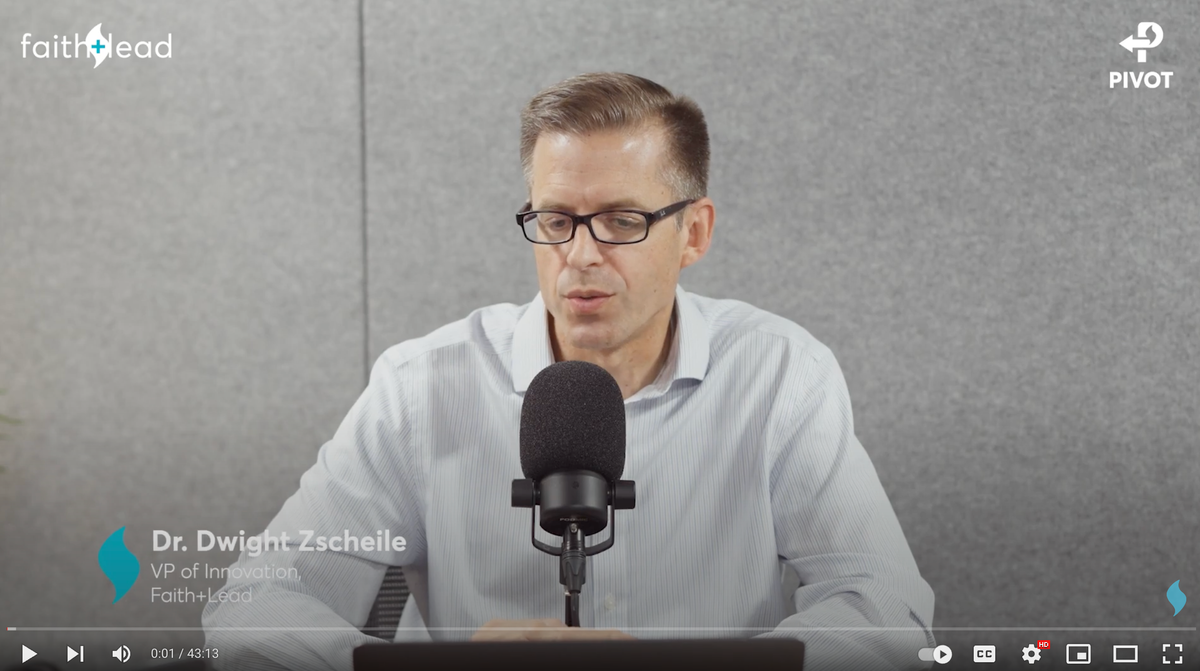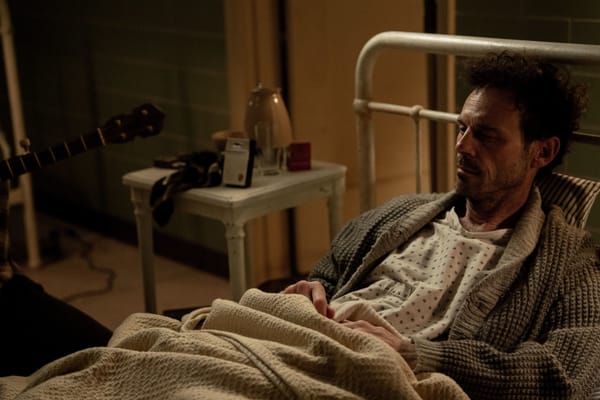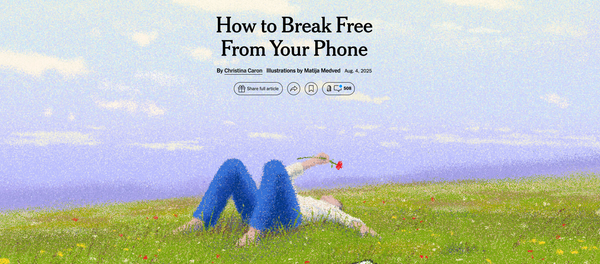Listening Notes: Responsive and realistic church innovation in the 'mixed ecology'
"How do we pay for it?", I can't help myself from asking

Outside of my core interests in education and digital media, the area of theology and ministry I most try to keep up with is church mission or missiology, especially at the more practical end of the spectrum. That's partly because I teach a continuing ed course on the topic, but partly because my first job was all about how mission can be shaped by new models and practices of church, so it's a consistent lens I bring to my thinking.
I've mentioned before that I really admire the work of Luther Seminary's PIVOT podcast and faith+lead initiative. That's especially true of the most recent episode of the podcast, an interview with Luther's mission and leadership professor and VP of innovation.
☝️ And as a side note, can I just say that Luther has understood (and executed! consistently!) better than maybe any other mainline theological institution what it means to invest in new media and new educational models as a part of their mission? 👏
People who have followed the Fresh Expressions movement will find Zscheile's argument familiar.
I think he's dead right about how hard it is to renegotiate the organizational culture of traditional congregations to help them better connect in a relevant way with people who—like Zscheile himself when he was a young person—don't have any previous experience of church. To take just one example they mention, many traditional congregations are more likely to invite a new-ish member to service on an institutional committee than to a deep experience of Christian formation.
It does seem expeditious to bless a new generation of church planters, community organizers and educators, movement chaplains, spiritual directors, and other leaders of initiatives that will probably look very, very different from the kinds of traditional congregations that were themselves an adaptation to a very different societal moment from our own.
What I didn't come away with from this episode is a question of how you pay for this approach. That's not a knock, just an observation, though I am hoping Zscheile's upcoming book will dive into this dimension.
I'm not an expert, but as a very active observer and sometime minor participant, my sense is that a lot of places that seem to be incubating a mixed ecology of faith communities (the Church of England, the Episcopal Dioceses of Texas and Southern Ohio, the PCUSA's 1001 New Worshipping Communities) are doing so with a pretty large infusion of financial and human resources. That's one of three common approaches I've noticed:
(1) Top-down funding: More money from denominations and judicatories to directly support this work, including paying leaders' salaries.
(2) Entrepreneurial funding: The leaders of these initiatives hustle to raise the money they need to support themselves and their faith communities, sometimes from wealthy patrons, sometimes through various forms of revenue-generating enterprise or fee-for-service work.
(3) Volunteer-only leadership: The leaders of these initiatives don't get paid, and the communities operate with little enough overhead to be basically self-supporting.
I suppose any of these models can work. I gotta say that model 1 feels increasingly threatened during a time of institutional decline. I'm curious and maybe a little skeptical about how model 3 can build enduring social structures with any consistency, especially at a time when volunteerism generally is under major pressure.
I believe model 2 is probably the most realistic, though perhaps also most challenging to organizational and theological sensibilities in the mainline denominations. But with notable exceptions like Cathie Caimano, I don't think we're doing very well equipping leaders with the skills to pull it off. I'll be curious to see what insights the Sacred Design Lab continues to generate, given how many of the initiatives they're interested in seem to be funded in this way.
What do you think? I'm definitely just wondering out loud here, and I invite you to share your wisdom, experiences, and hot takes in the comments.



